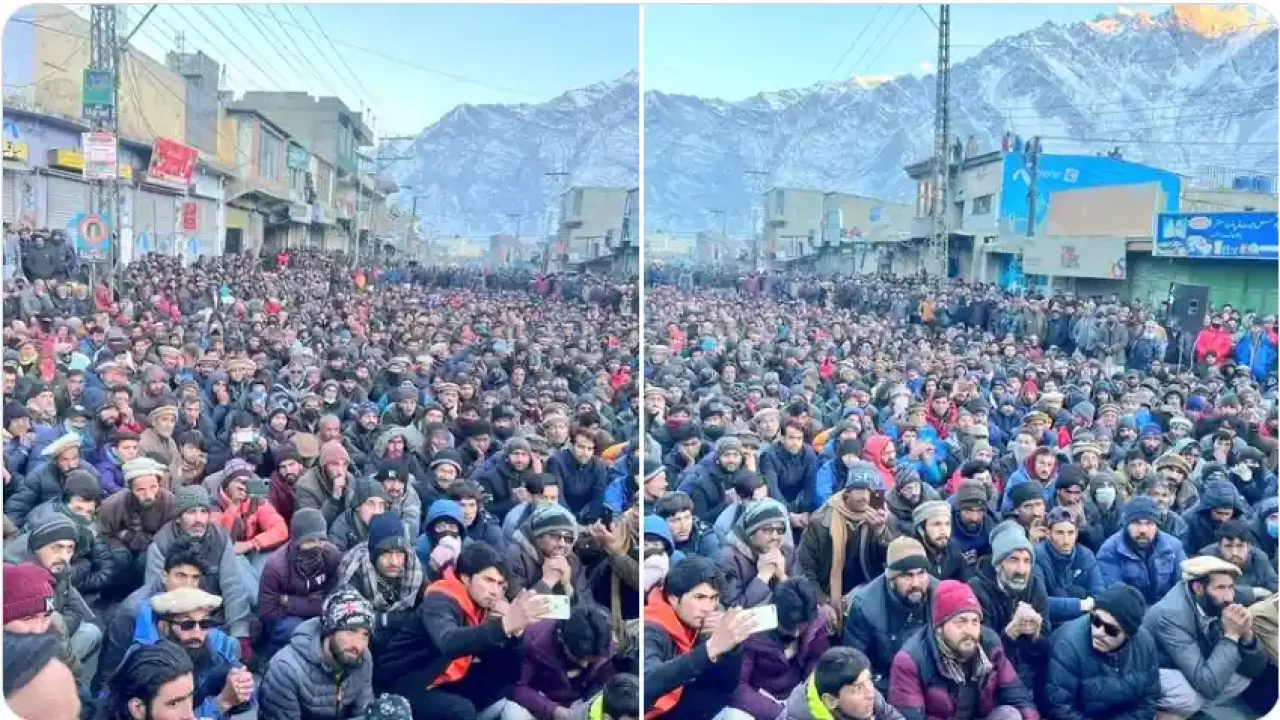In Gilgit-Baltistan, the fervour for fundamental rights has erupted into widespread protests, with political, religious, and social organisations expressing discontent over the government’s decision to hike wheat prices and discontinue subsidies.
The local residents are vehemently opposed to issues such as load shedding, inflation, and the absence of essential amenities in the region.
Undeterred by the harsh weather conditions, protesters are taking to the streets, intensifying pressure on the administration. The protests also include demands for basic rights, such as employment, electricity, education, and a life above destitution.
The majority of demonstrators asserted that their escalation of protests was driven by a lack of alternatives to persuade authorities.
Residents from diverse backgrounds are uniting in support of the public cause in Gilgit-Baltistan.
A local resident highlighted, “People have been protesting for the past month, braving the chilly weather. Issues related to wheat subsidies, electricity, and healthcare facilities have fueled their discontent.”
The angry residents are specifically calling for accountability from government officials, demanding that if the public is expected to bear increased wheat prices, ministers, bureaucrats, and army generals should relinquish their subsidies. Allegations have been made that those in positions of power enjoy complimentary or discounted services that exacerbate the public’s frustration.
Despite frequent power outages, locals are burdened with inflated electricity bills, further adding to their grievances. In response to intensified protests against load shedding, a significant number of people are advocating for a boycott of bill payments until their concerns are adequately addressed.
In addition to economic challenges, educational institutions in Pakistan-occupied Kashmir (PoK) have become arenas of persecution by the government. The promotion of education is seen as a potential threat to the region’s annexation, leading to protests by academic and administrative staff demanding salary hikes.
University students are also expressing their discontent against unprecedented fee hikes, citing mismanagement of resources, a lack of facilities, and persistent issues such as faculty shortages, inadequate transportation, and insufficient classrooms.
The multifaceted plight of Gilgit-Baltistan residents encapsulates a broader struggle for basic rights and fair treatment as they face economic hardships and educational challenges.

